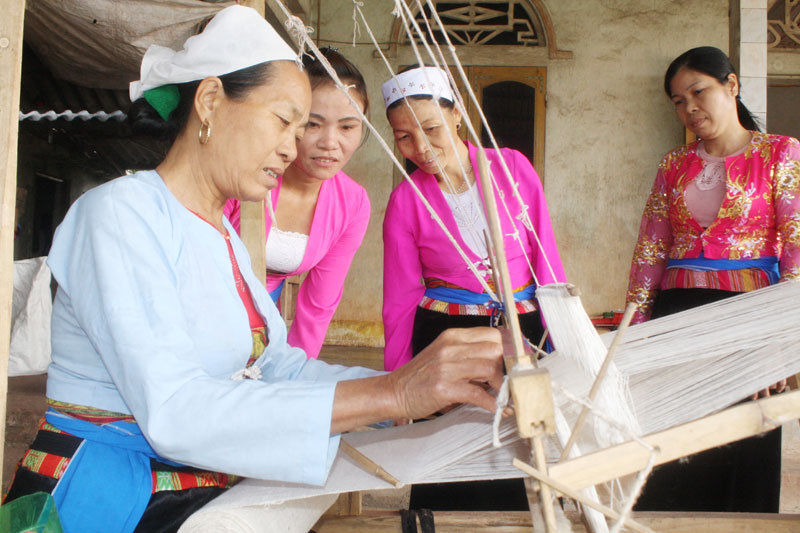



Weaving has become the daily work of the female people in Co hamlet, Dong
Lai commune (Tan Lac) during idle time.
More than 10 years ago, the craft of weaving brocade in the village
gradually died out, some people even removed the loom to make firewood. But
now, weaving cloth in free time has become a favorite work and brought a lot of
money for many women. Ms. Bui Thi Mia, who is considered as the village chief
of Co hamlet, says that since Vong Ngan cooperative received the support to
restore the, there have been about 80 looms in Com hamlet now. There are
products to sell to customers at any time of the year.
The time to weave the raw cloths, colorful brocade skirts can’t be counted
by days or months, it may take a year. According to Ms. Bui Thi Yen in Co
hamlet, Muong women have to go through about 20 stages to weave a cloth. The
first is growing cotton, taking care for it for about six months to harvest.
After being picked home, cotton must go through more than ten stages to become
the thread. Then from that they put the threat into the loom and it takes about
half a year to create a skirt waistband and skirt legs if working hard enough.
Ms. Bui Thi Mia adds "Currently, although there is a competition with
the brocade products woven by machines, we still work hard to create handmade
products that are both beautiful and meet the customers’ needs. In recent
years, the consumption of the products has mainly been through trade fairs and
festivals at the beginning of the New Year. Although it does not bring a high
income, but weaving helps women improve their lives".
In order to meet the needs of the market and improve competitiveness, women
in Com hamlet have discovered and created new products such as bags and scarves
with eye-catching patterns. With the love for traditional weaving, eighty looms
are being woven every day. They believe that if the product is widely
advertised, Muong patterns will stretch further and further, bringing warmer
springs for Muong village.